3 years after Myanmar’s coup, is the clock finally running out on embattled junta as it ‘slowly falls apart’?
“I think it may take longer, and it will be hard,” says Aung Zay Ya, a mechanical engineer whose path, like many of his generation, has been diverted into conflict by the coup.
“But I can see the dictatorship is slowly falling apart,” he told This Week in Asia from Karenni state.
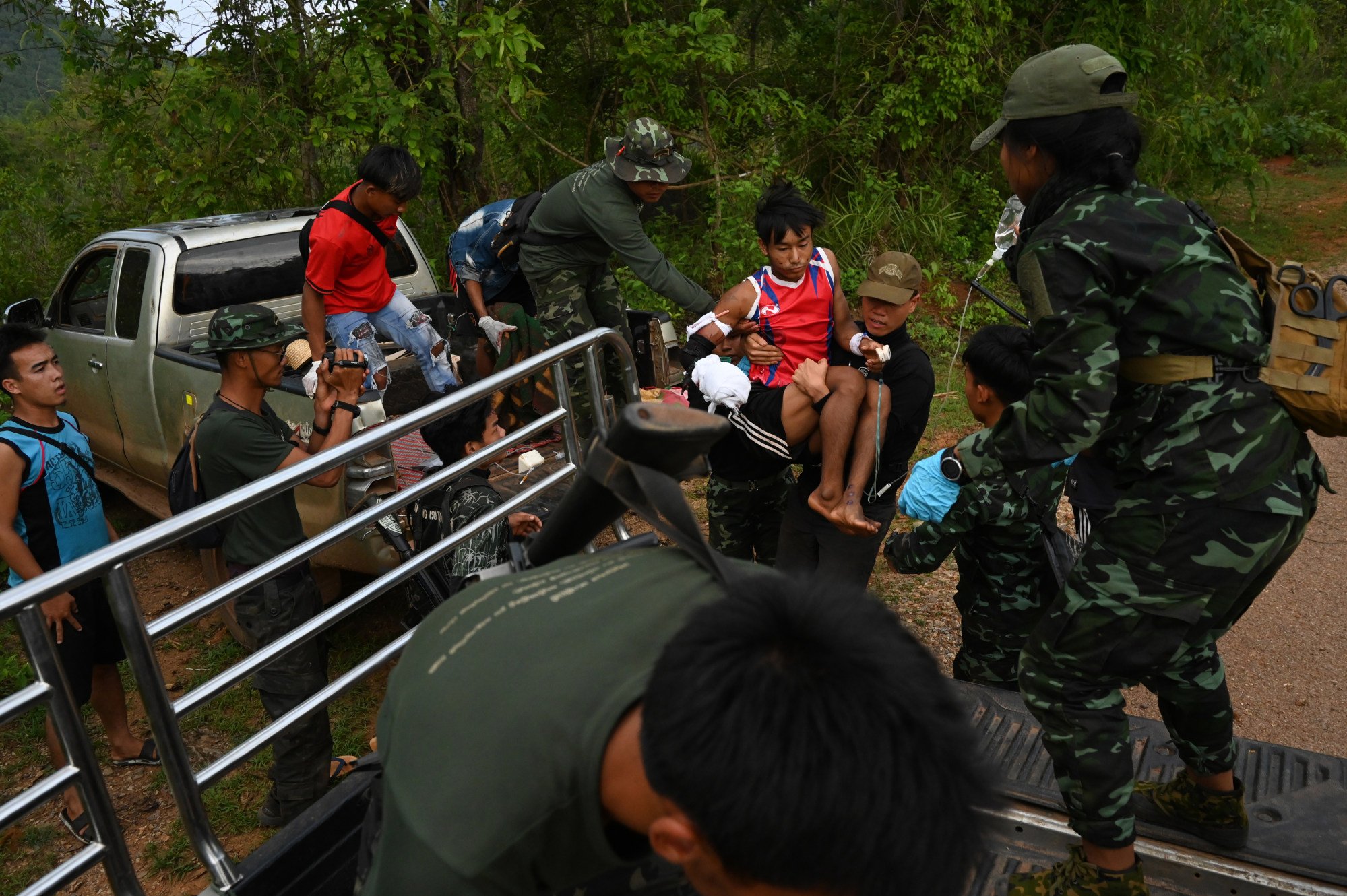
Aung Zay Ya is 27 and leading volunteer doctors and rescuers for humanitarian group Free Burma Rangers, when he should be following his career path instead.
But the coup has stubbed out personal ambitions, redirecting his life into the forests of eastern Myanmar, where he rescues villagers trapped under air strikes, delivers relief to camps of internally displaced people and provides medical help to young rebel fighters – and their wounded opponents.
“I don’t hate them,” he says, quoting the Bible as his guide to his treatment of the enemy.
“They are scared too. When I talk to them, they say they don’t know what they are fighting for.”
The challenge ahead for the resistance is to slowly occupy more territory, outpost by outpost, bridge by bridge, as they seek to constrict the bigger and better-armed military to the cities of Yangon, Mandalay and the remote capital Naypyidaw.
Pressure from inside the junta may do the rest.
Could Myanmar’s military be deposed by armed groups fighting across the country?
Could Myanmar’s military be deposed by armed groups fighting across the country?
Tasting freedom
Rumours abound of threats to Min Aung Hlaing, 67, from within the armed forces, as unprecedented military losses, mass surrenders and wobbling alliances with powerful warlords, throw his control over the country into doubt.
His spell is even waning over ultranationalist Buddhist leaders who once rallied their congregations behind the Tatmadaw, or armed forces as the military is known. One prominent monk last week reportedly called for the junta’s No 2 leader Soe Win to take over.
“The military is collapsing … this is clear,” said Nay Phone Latt, a former lawmaker and spokesperson for exiled administration-in-waiting the National Unity Government (NUG). “This year, the pace of liberation will only quicken … [but] the military will fight ever more brutally, the closer it comes to defeat,” he warned.
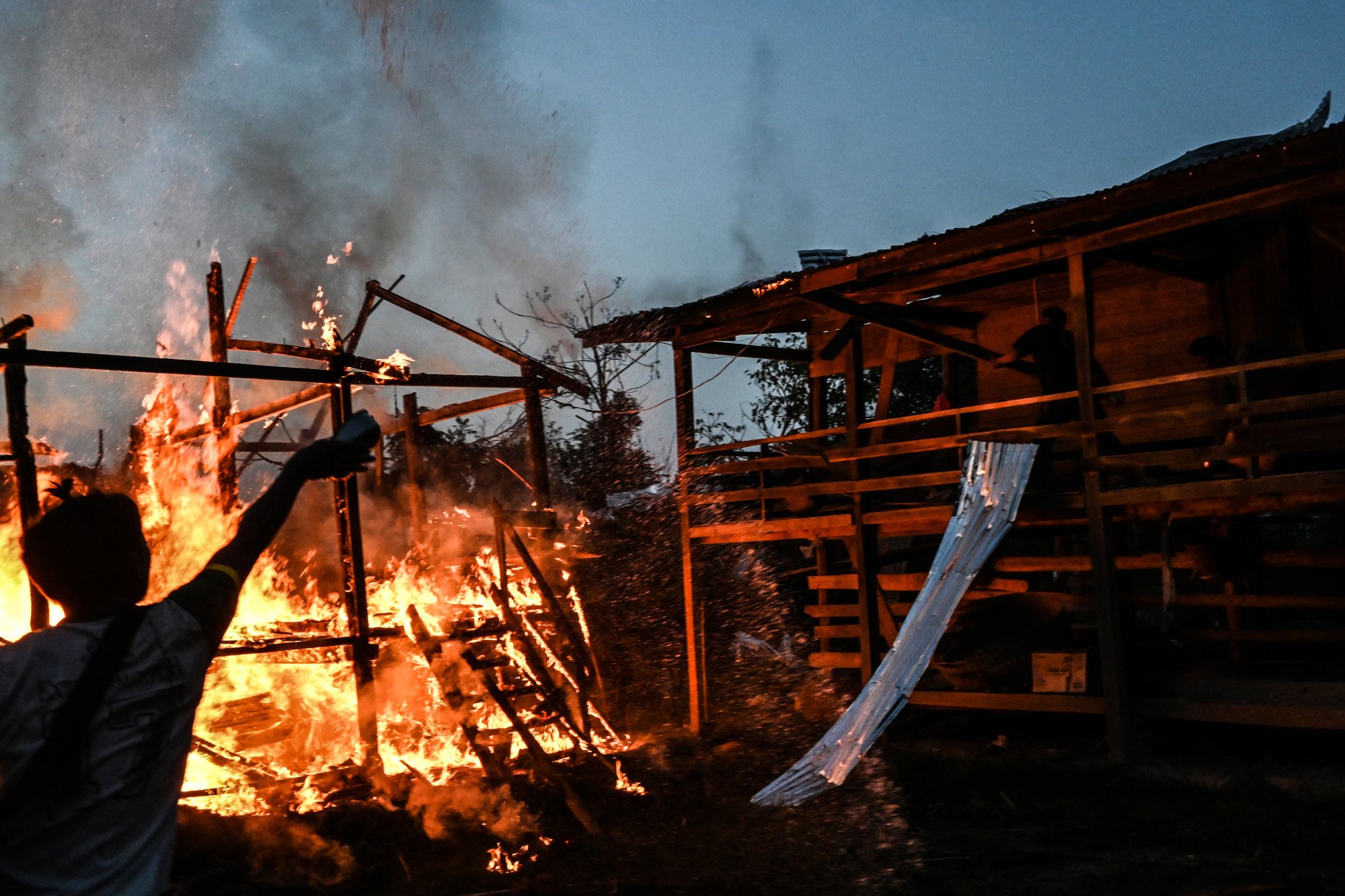
But the internal power struggles of the Tatmadaw – which has controlled Myanmar for around 50 of the last 60 years – rarely emerge in public.
It remains one of Asia’s most resilient, brutal, hierarchical and secretive militaries, its leadership cloistered in Naypyidaw.
“The current military leaders are not only bringing catastrophe to the country but also destroying their own institution,” says Ye Myo Hein, senior adviser at the United States Institute of Peace (USIP), adding that they have “crossed the Rubicon”.
“Even in their potential downfall, they appear ready to bring down the entire institution with them.”
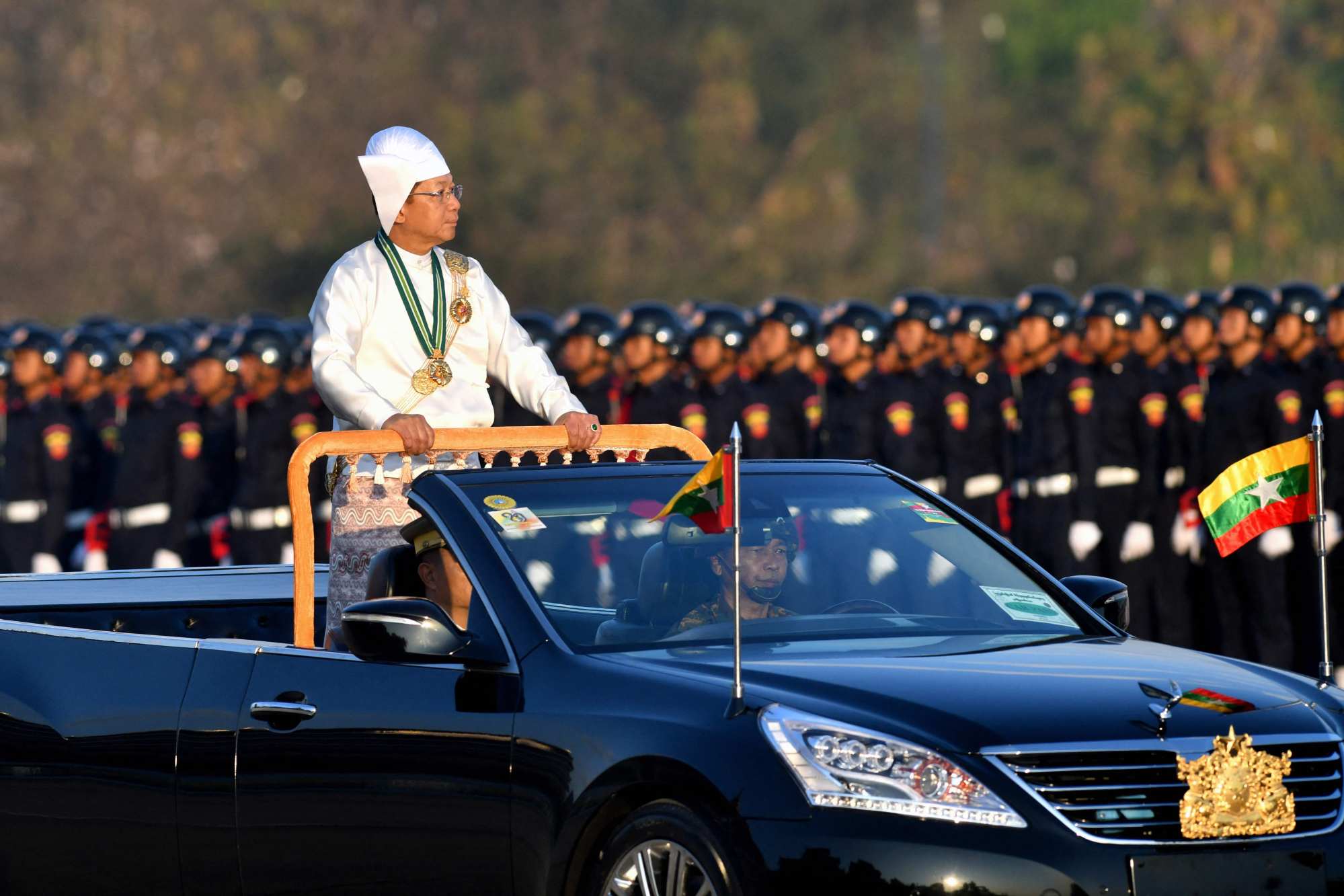
The personal stakes for Min Aung Hlaing could not be higher.
He is despised by most of Myanmar’s near 54 million population as the frontman for a military which has slaughtered its own people, plundered its natural resources and has turned the clock back on the country’s development whenever a freer, more democratic and wealthier future appeared at hand.
“We were on the path towards something. Our country developed so fast,” said Myanmar self-exile Thu Thu, 30, who was about to open a cosmetics firm when the coup occurred.
“We were connected to the world, we had so much potential to grow. These opportunities are all gone … but we are winning, the young fighters can taste freedom.”
If and when it comes, that freedom has already been paid for many times over in the blood and suffering of Myanmar’s people.
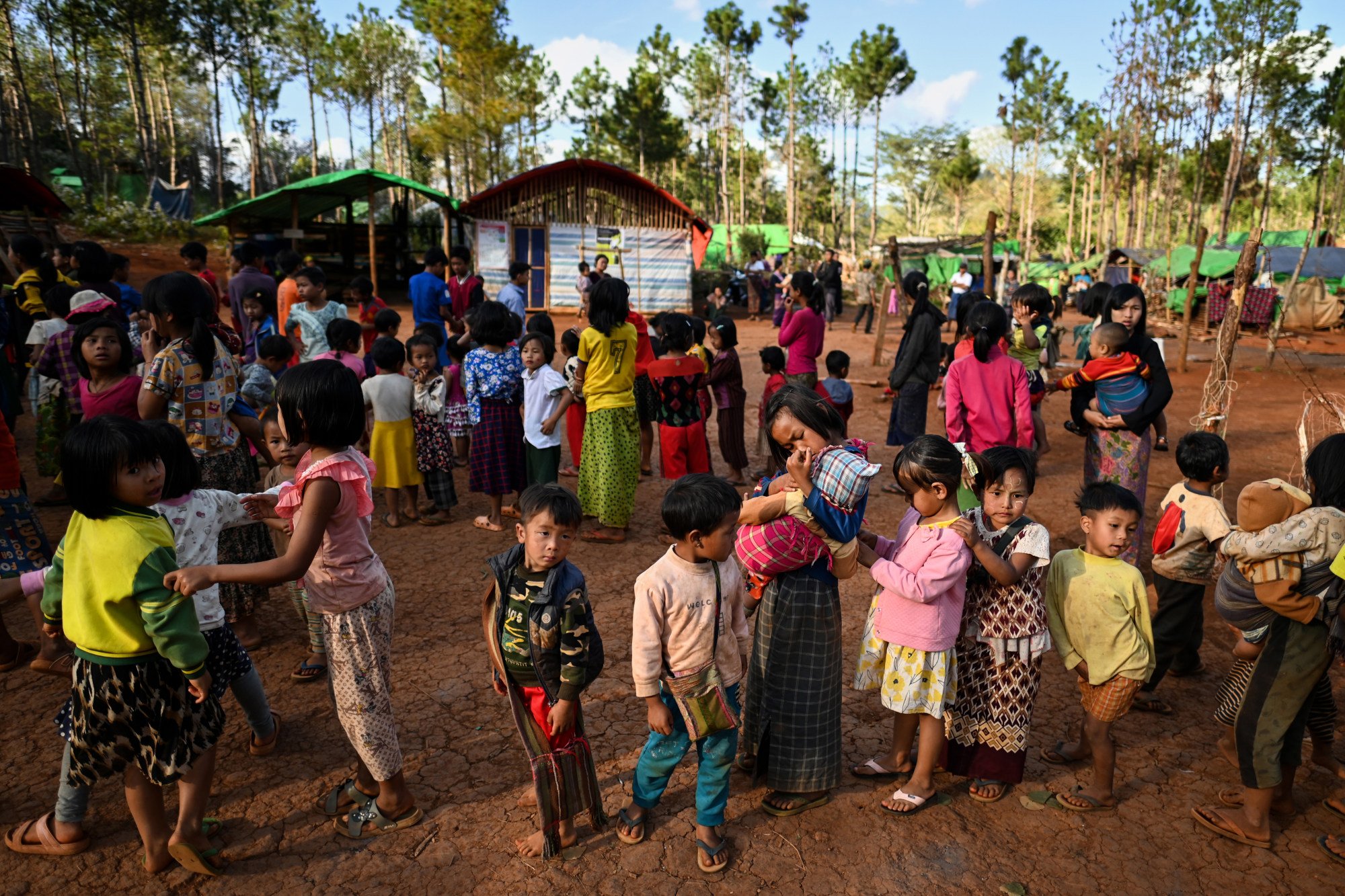
Thousands of civilians have been killed in crackdowns on protests, air strikes and notorious “clearance operations” by troops who massacre, rape and raze villages, rights defenders say.
Millions have been displaced inside Myanmar, huddling in churches, schools, caves or jungle trenches from aerial bombardment.
“I don’t think it’s an overstatement to say it’s the worst human rights crisis the region has faced since the Khmer Rouge,” says Patrick Phongsathorn of Fortify Rights that has mapped the junta’s abuses.
A generation of young civilians without combat training has been forced to take up arms in People’s Defence Forces (PDFs) in a nationwide rebellion.
But if cornered, the army is likely to inflict further atrocities on Myanmar’s people.
“We have lost our human resources,” says Aung Zay Ya of the Free Burma Rangers, reflecting on the young men and women who now fight the junta instead of building their lives – and the country’s economy.
Turning point
If a tide has decisively turned, experts say it started in northern Shan State on October 27 last year.
A shock offensive by well-armed ethnic armed groups under the banner of The Three Brotherhood Alliance had caught the junta forces cold.
Now immortalised as Operation 1027, the date it started, the Brotherhood fighters rattled through remote bases, seizing key roads and bridges and adding Tatmadaw anti-aircraft heavy machine guns and artillery to their arsenal, in victories amped up over the group’s hyperactive social media.
All in: Southeast Asia’s Casinoland is ‘underground bank’ for organised crime
All in: Southeast Asia’s Casinoland is ‘underground bank’ for organised crime
Some of those border towns doubled as bases for the massive cyber fraud operations strafing Asia and beyond.
They were organised by Chinese gangsters and staffed in part by Chinese scammers – some forced, others willing – from scruffy buildings under the watch of Border Guard Forces (BGFs) allied with the Tatmadaw.
The offensive is widely believed to have won the tacit agreement of China, after Beijing appeared to lose patience with the scam centres harbouring Chinese criminals and targeting its nationals on its doorstep.
The Brotherhood has played up its motivation to take down the scam rooms, despite the easy money to be made by controlling them. Scam operations have migrated in part to the Myawaddy area near the western Thai border, where another BGF is – or at least was – allied with the junta.
Hundreds of junta troops in the key town of Laukkai near the China border surrendered earlier this month to the Brotherhood after weeks of clashes, a chastening outcome for the Tatmadaw.
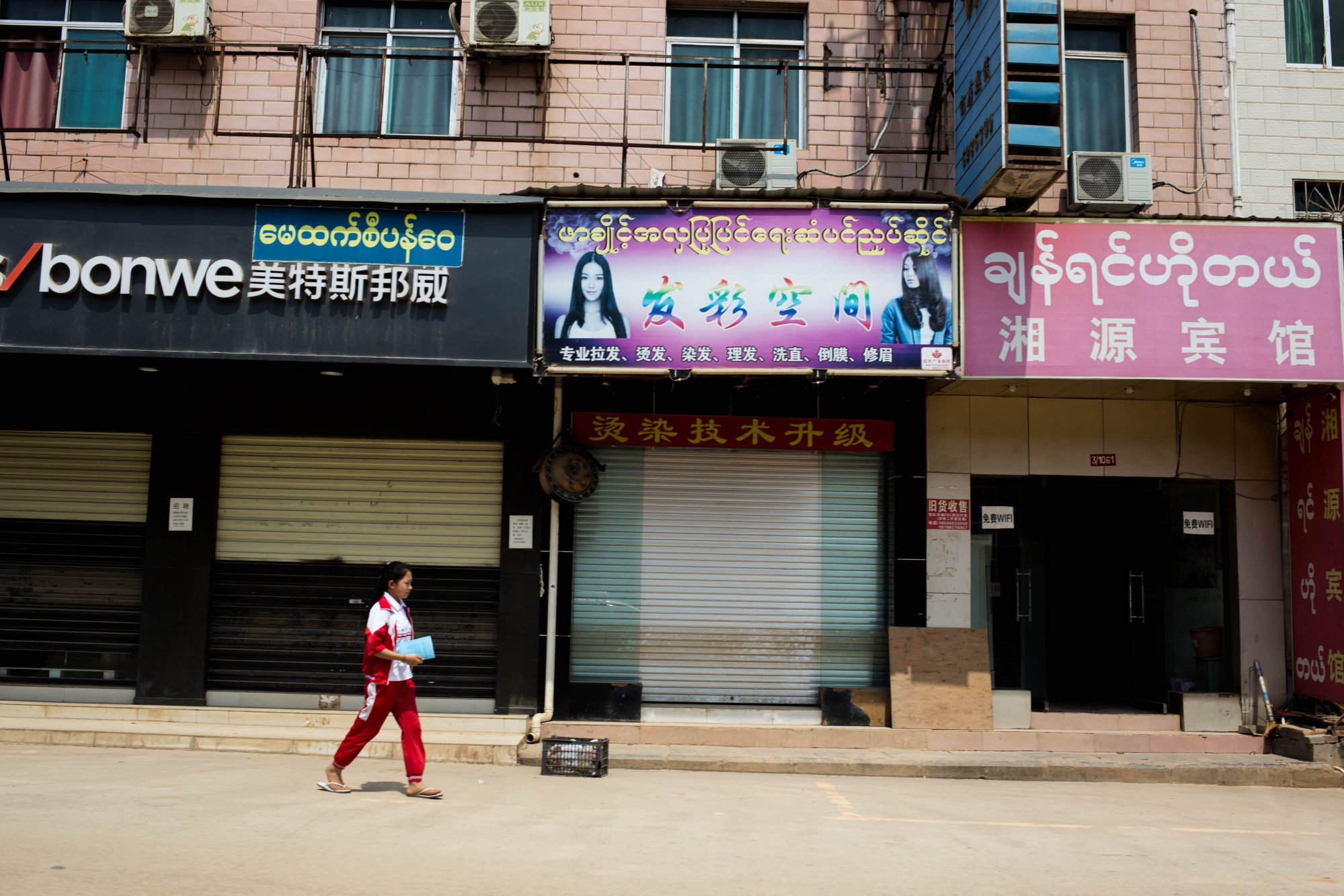
Six brigadier-generals who handed over the strategic town have been taken into custody by the junta, reflecting the need to smother the threat of a contagion of insubordination and surrender.
“The Tatmadaw as an institution is facing a crisis without precedent in Myanmar’s modern history,” Bangkok-based security analyst Anthony Davis told This Week In Asia.
“The humiliating spectacle of cascading battlefield defeats over recent months has burst the bubble of military invincibility and severely undermined morale both within the SAC regime and in the army itself,” he said, referencing the State Administration Council, the junta panel that Min Aung Hlaing chairs.
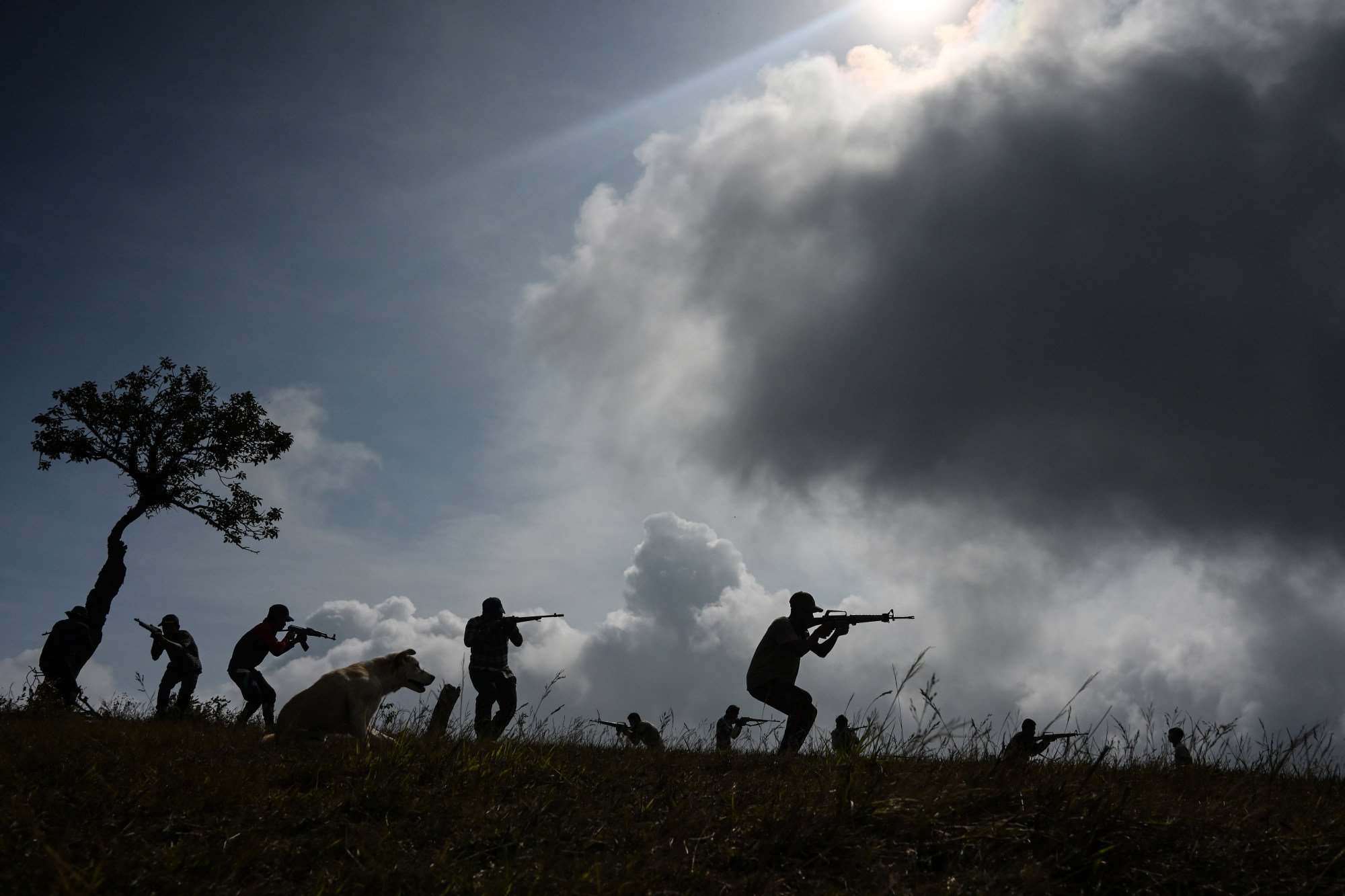
The weeks ahead may see the rearmed Brotherhood focus efforts on driving the junta out of the remainder of northern Shan including Lashio, a gateway town on the road to Mandalay.
But the deeper danger to the junta could be from the coordination of fighters and materiel between the ethnic armed groups and the PDF resistance fighters.
“An arguably far greater problem for the SAC would be if the Brotherhood were to transfer quantities of captured infantry support weapons such as heavy machine guns and mortars to PDFs operating beyond Shan State,” Davis added.
That would effectively shift “the war west towards Mandalay and along the Ayeyarwady River north of the city”, he said.
As Myanmar fighting threatens borders, China and India ‘compete for influence’
As Myanmar fighting threatens borders, China and India ‘compete for influence’
“Even [the military’s] power bases, like Naypyidaw and major cities, are no longer secure and are susceptible to attacks from the resistance,” added Ye Myo Hein of USIP.
Since the coup, Min Aung Hlaing has relied upon China’s few-questions-asked backing to offer a shield from allegations of human rights abuses at the United Nations, as well as a lifeline of trade, investment and foreign currency for a sanctioned nation.
Under the Suu Kyi government, Chinese investment grew in Myanmar and currently accounts for nearly a quarter of total foreign investment in the country, most of it in the power sector. Among its interests, Beijing wants to build a corridor through Myanmar for strategic access to the Indian Ocean and has several major infrastructure and energy projects under way, including the Kyaukphyu deep water port in the Bay of Bengal.
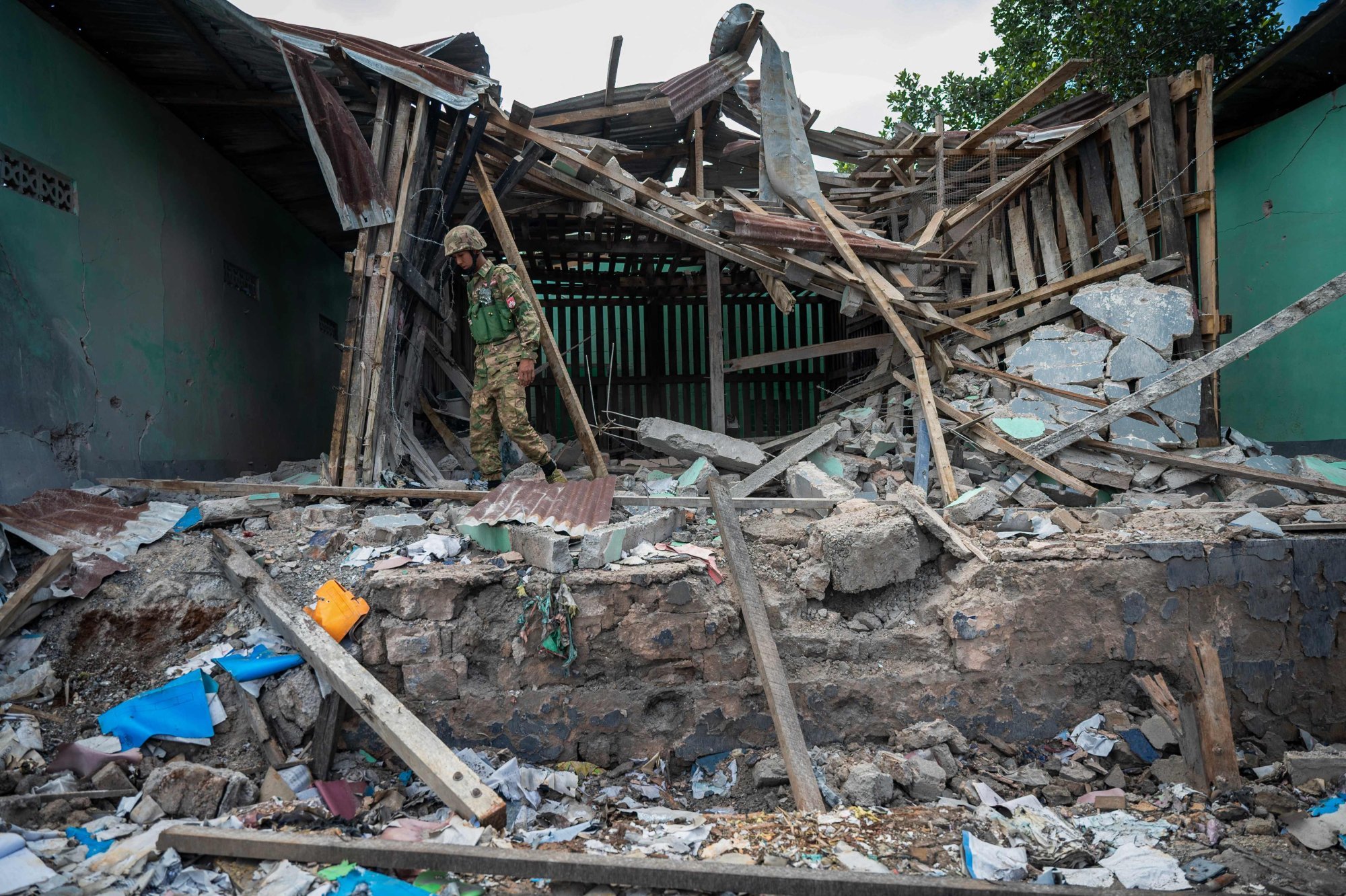
But conflict has stalled progress as unpredictability over security and governance nags at large investments.
“These projects are huge. Sometimes, they need more funding, sometimes, they need more land,” said Nian Peng, director of the Hong Kong Research Centre for Asian Studies.
“And all of these are dependent on the local government of Myanmar, how they deal with these difficult issues, and how they push forward in these projects.”
India, while still engaged as an investor, also has major security concerns after conflict has spilled across its long border with Myanmar’s Chin State. It now plans to erect a fence along its vast and porous frontier with Myanmar and will end a free movement border zone agreement, Indian media reported last weekend, after hundreds of troops from Myanmar who were fleeing insurgent attacks crossed into India.
Min Aung Hlaing, already sanctioned by the West, can ill-afford to lose the few friends he has, experts say, especially China, the junta’s erstwhile reliable underwriter.
China brokers Myanmar truce, calls for ‘maximum restraint’ from junta, rebels
China brokers Myanmar truce, calls for ‘maximum restraint’ from junta, rebels
To show he has a plan through the chaos, the Senior General insists new elections will be held, despite annulling the last one citing unproven allegations of fraud, which reaffirmed the popularity of the National League for Democracy and Aung San Suu Kyi.
And he wants to emboss it with international recognition.
Myanmar’s state news agency last week carried photos of a grim-faced new Brazilian ambassador handing his credentials to Myanmar next to Min Aung Hlaing “who expressed the plan of holding the free and fair election”.
But it is an impossible task given the chaos across most of the country and the hatred for Min Aung Hlaing.
The coup swept away a decade of slow democratic gains and crushed the potential of a frontier economy driven by a young, determined population as they sought to construct a bright, outward-looking Myanmar.
The gamble by Min Aung Hlaing, a lifelong soldier who believes Tatmadaw and nation are welded together, to seize power has backfired spectacularly. Under a constitution the army had written, it had a powerful veto power over all civilian policy, as well as full control of defence and security matters and vast military-owned businesses straddling gems, forests and energy projects.
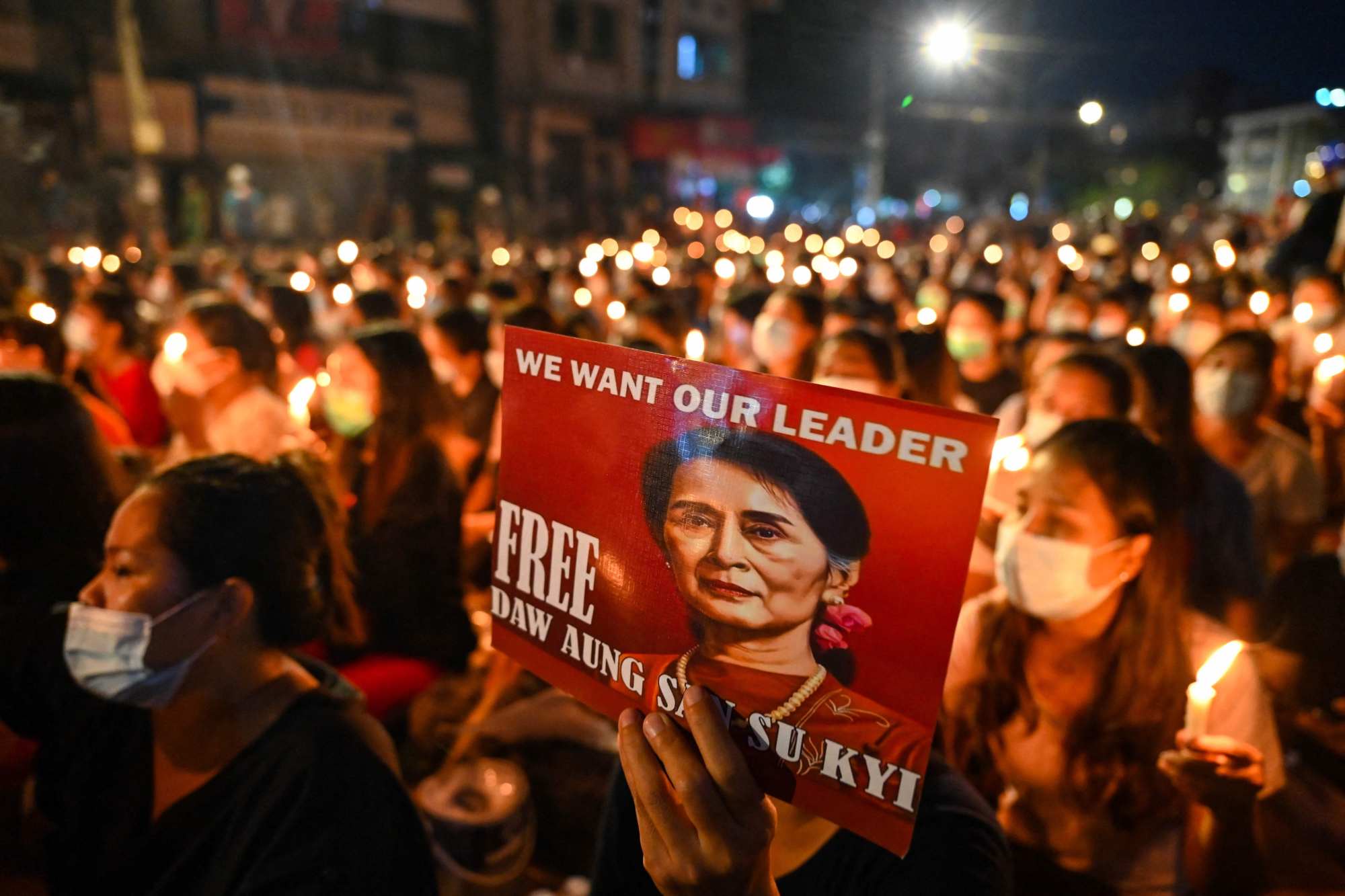
Suu Kyi, the 78-year-old democracy figurehead who accepted the army hand in power to become the country’s de facto leader before the coup, was detained shortly after February 1. She has been convicted of multiple trumped-up offences which will keep her in jail for life without an amnesty.
She may yet prove of value to the generals.
“For the top military leaders, it has become a survival game, and they are determined to persist, resorting to the most cruel and repressive means,” says Ye Myo Hein of USIP.
They may only have the “Aung San Suu Kyi card” left to play, he says, by “using [her] or a facade of negotiations with her to contain the resistance and potentially sow division in the movement”.
But Suu Kyi’s star power among the pro-democracy movement has diminished. While many retain a deep respect for her years championing democracy, the new generation says a defeated military can have no future role in Myanmar’s politics.
“Furthermore, the growing strength of ethnic armed groups has reshaped the current political landscape into a multiplayer game,” Ye Myo Hein says. “Surpassing the traditional rivalry between the military and the NLD.”
A hug then a shrug
Despite sanctions on key leaders and military industries, Myanmar watchers say the country’s resistance has essentially been abandoned by the international community, with China blocking Western moves at the UN Security Council.
A decade ago, as it opened up, the international community could barely wait to cosy up to Myanmar and its frontier market of millions of new consumers needing everything from phones and SIM cards to fast food chains. In 2014, then-US president Barack Obama embraced Suu Kyi in Yangon for the cameras, as America revelled in what seemed to be the start of a democratic ‘good news’ story as the disasters of Afghanistan and Iraq shredded notions of nation-building.
But American power is now invested elsewhere, with Myanmar – whose junta found a close ally with the military government in neighbouring Thailand until recently – a footnote in a troubled globe.
“The international community has largely stood by and watched it happen,” says Patrick Phongsathorn of Fortify Rights, referring to the army massacres, campaigns of rape and targeting of civilian populations with air strikes and forced clearances.
Thailand accused of ‘piggybacking’ Myanmar by leading talks with junta
Thailand accused of ‘piggybacking’ Myanmar by leading talks with junta
In the long term, he adds, accountability for the junta’s crime should be “baked into whatever comes next” at the International Criminal Court.
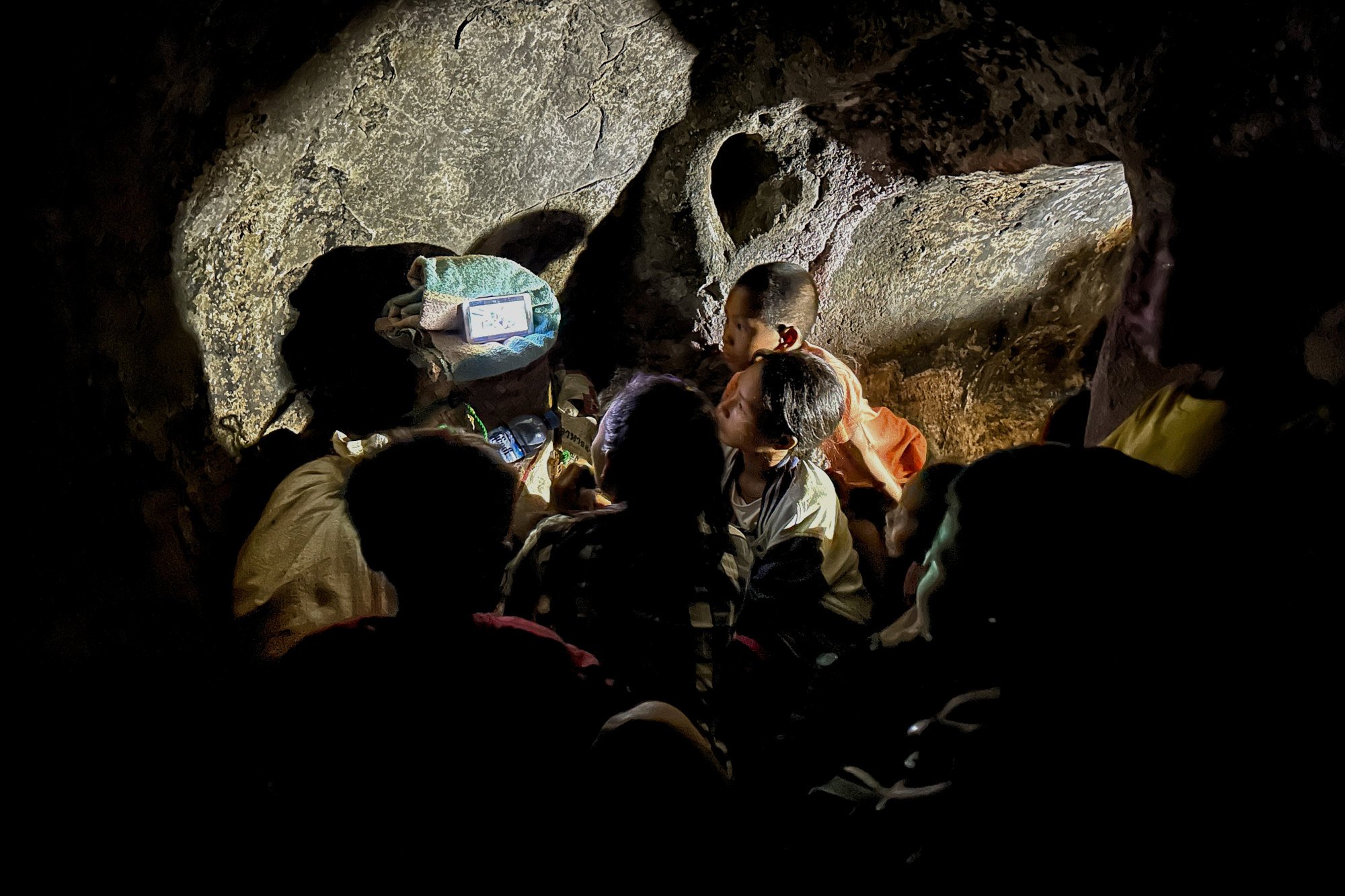
Places in future
Few foresaw Min Aung Hlaing’s coup three years ago, after his predecessor had eased open the doors to the country on the military’s own terms; its power, billions of dollars in business interests and control over the guns hard-wired into the constitution.
Fewer still predicted the instinctive nationwide uprising that followed across the country, or the potentially existential predicament the Tatmadaw now faces.
“In the coming months the reaction will almost certainly be to dig in,” says security analyst Anthony Davis. “And on the basis of the strengths the army undoubtedly still has – discipline, resources and unity of command – unleash maximum destruction on resistance forces and their civilian support base.”
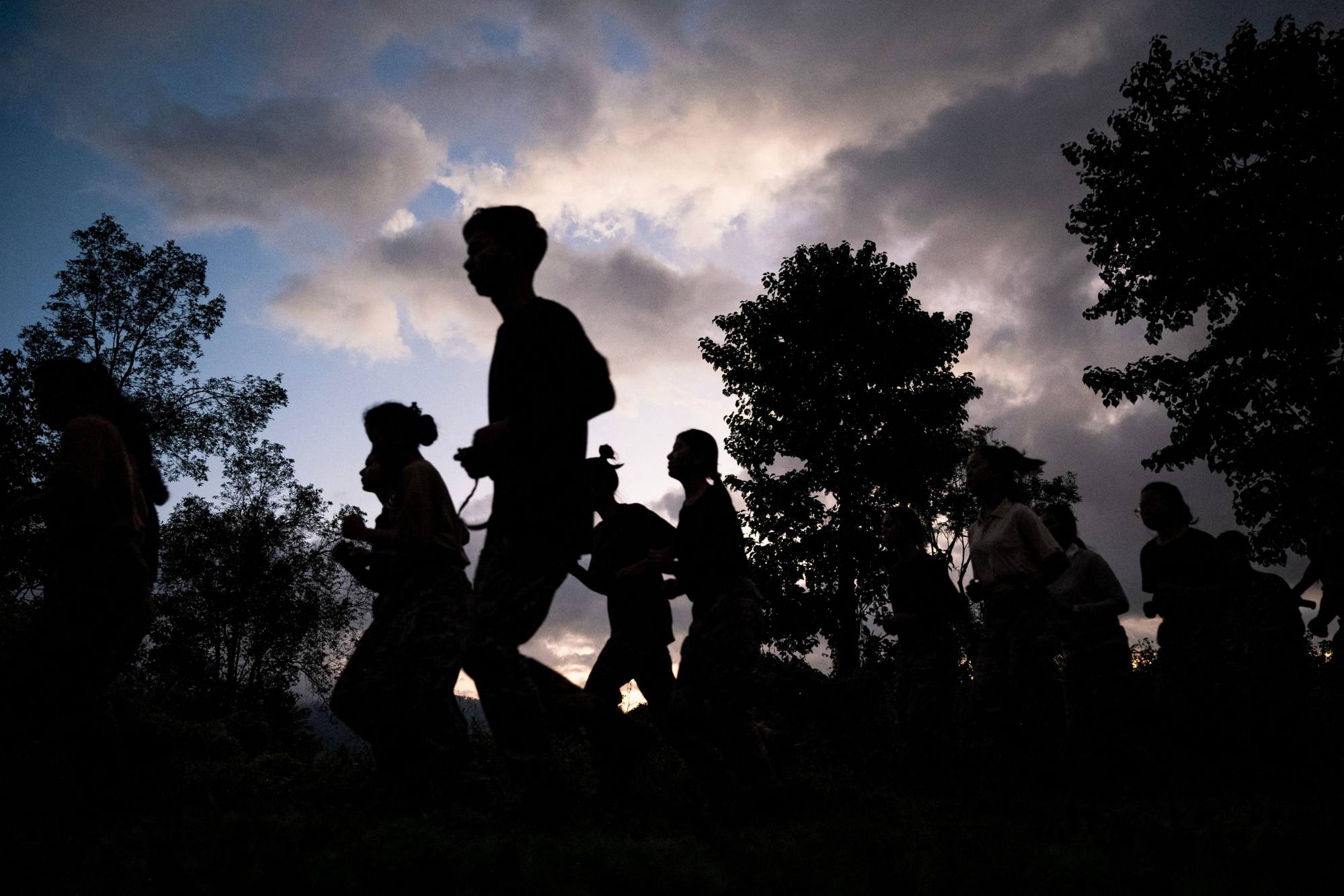
The National Unity Government says more hard times are ahead but is bullish over the prospects for an eventual victory. It upholds the “People’s Administrations” in territory taken from the junta as an example of how to reconstruct a state from the ashes of whatever is left behind once the Tatmadaw is defeated.
“Myanmar’s future is not set in stone, for good or for bad,” NUG spokesman Nay Phone Latt said. “It must be forged through the collective efforts of all for a better future based on kindness, compromise, and dedication to the greater good.”
But with ethnic armed groups crucial to defeating – or forcing the Tatmadaw to the negotiating table – experts are wary over the post-junta prospects for a federal Myanmar which fairly represents all interests in peace.
Since independence, war with ethnic armed groups on its borders has never fully stopped.
If it eventually falls, the Tatmadaw is likely to seek a stake in the new political settlement that emerges. But that is unthinkable to many of those who have fought them, especially Myanmar’s young resistance, who have watched their friends and family die, while their own lives have been put on pause.
“For me, we will need to start again with a whole new army,” says Aung Zay Ya of the Free Burma Rangers. “There’s no place for this one in our future.”


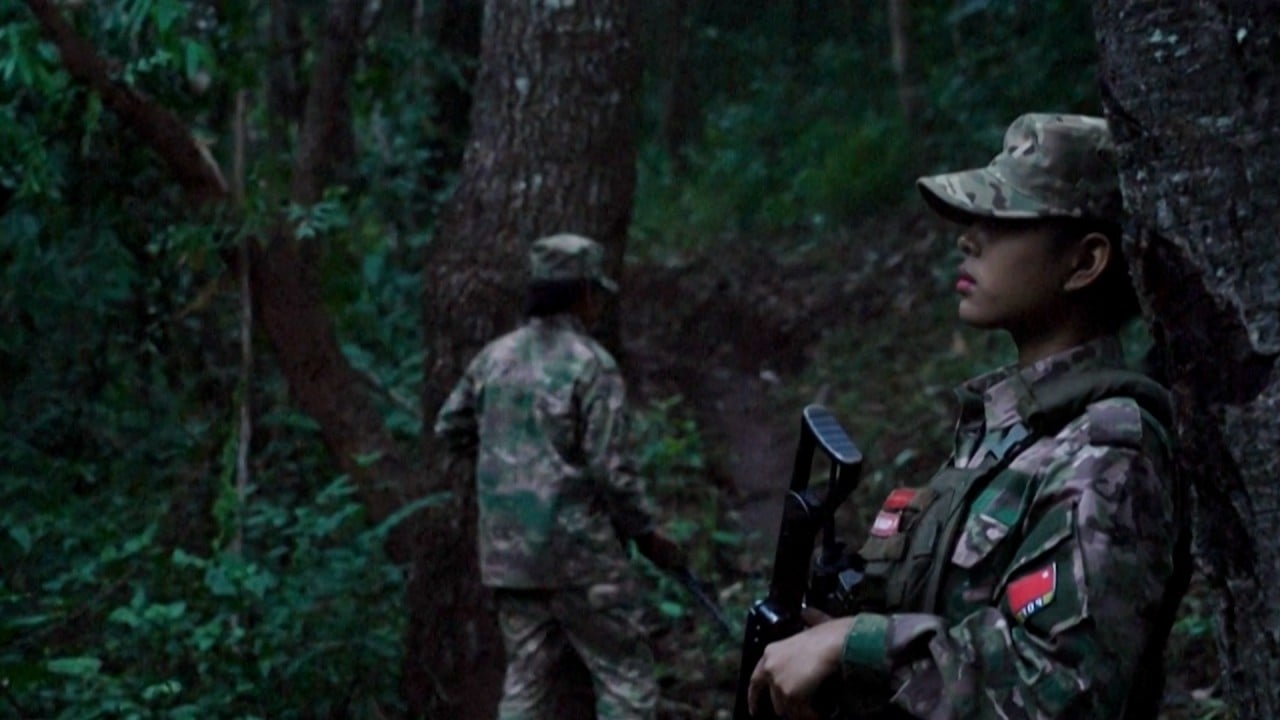

 Play with Welcome Bonus Up to 300%
Play with Welcome Bonus Up to 300%